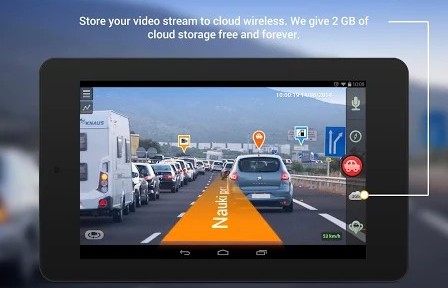Digital Driver Database Replaces Paper License
As of the beginning of this week, 8th June 2015, UK driving license rules changed. The paper counterpart that accompanied your photocard license is no longer a valid document.
Now, any new licenses issued will be made up of the existing photocard, which was introduced to conform with the rest of the EU. But instead of the old paper part that accompanied it, you now have your very own digital driving database!
All of your driving history is now online as part of the MyLicense scheme. Like the old paper part, your database includes any details that the DVLA can’t fit on the credit card-sized photocard part of your license.
Free access assuages the naysayers
The initial reaction of most business owners to the change was, perhaps understandably, negative.
They’d use the paper counterpart of a license for many elements of managing their fleet. From hiring drivers and fleet vehicles to checking points to see what impact a driver’s history would have on insurance, the information on the old documents was vital.
But opinions change. And, to be fair, this new way for drivers to manage and share their details is quite ingenious. For a start, access to your My License information is free.
Anyone who’s misplaced their paper counterpart in the past and had to fork out £20 for a replacement will appreciate that, at least.
No one to blame but yourself
In addition, drivers will now have no way of covering up their past misdemeanours. The benefit to safe drivers is potentially immense.
Imagine if you’re hiring a van, for a removal, a trip to the continent or a minibus for a group excursion. Theoretically, the hire company can actually base the rate of insurance you pay on your own record.
It’s possible that the days of paying generic, over-the-odds premiums to compensate for bad drivers’ cover are nearing an end.
Sharing your driving history is a doddle
This is how the new system works for sharing your info.
You log into your MyLicense account on the DVLA website. Whilst you’re in there, you can generate a code, called a license check code, for a third party to access that information. Only you can authorise this code.
What’s more, the third party can only use it once. And then they have to use it within three days. Once the code’s been used or 72 hours has passed, the code you’ve generated will become null and void.
When they’re in your database, they don’t have access to all of your data. They’ll only be able to see:
- the types of vehicle your licence permits you to drive;
- penalty points and/or disqualifications you’ve accrued;
- your full name as it appears on your driving license;
- the last 8 digits of your driving license.
As your photocard contains an image of you as well as the license number, the new facility means no one can use your information other than you.
Now, when you give vehicle hire companies a snapshot of your driving history, there’s no doubt about the validity of your information.
MyLicense: more than your job’s worth?
You can share these details with your employer, too. If your driving record is impeccable, the MyLicense facility could be the difference between you and another getting the dream driving job.
The benefit for fleet managers is therefore immense. Potential employees now have no way of covering up an imperfect driving record.
And rather than having to wait for an employee to bring in their counterpart from home, just give them access to the internet. They can generate a license check code in an instant. You can then log on to the check code portal and garner the information you need first hand.




